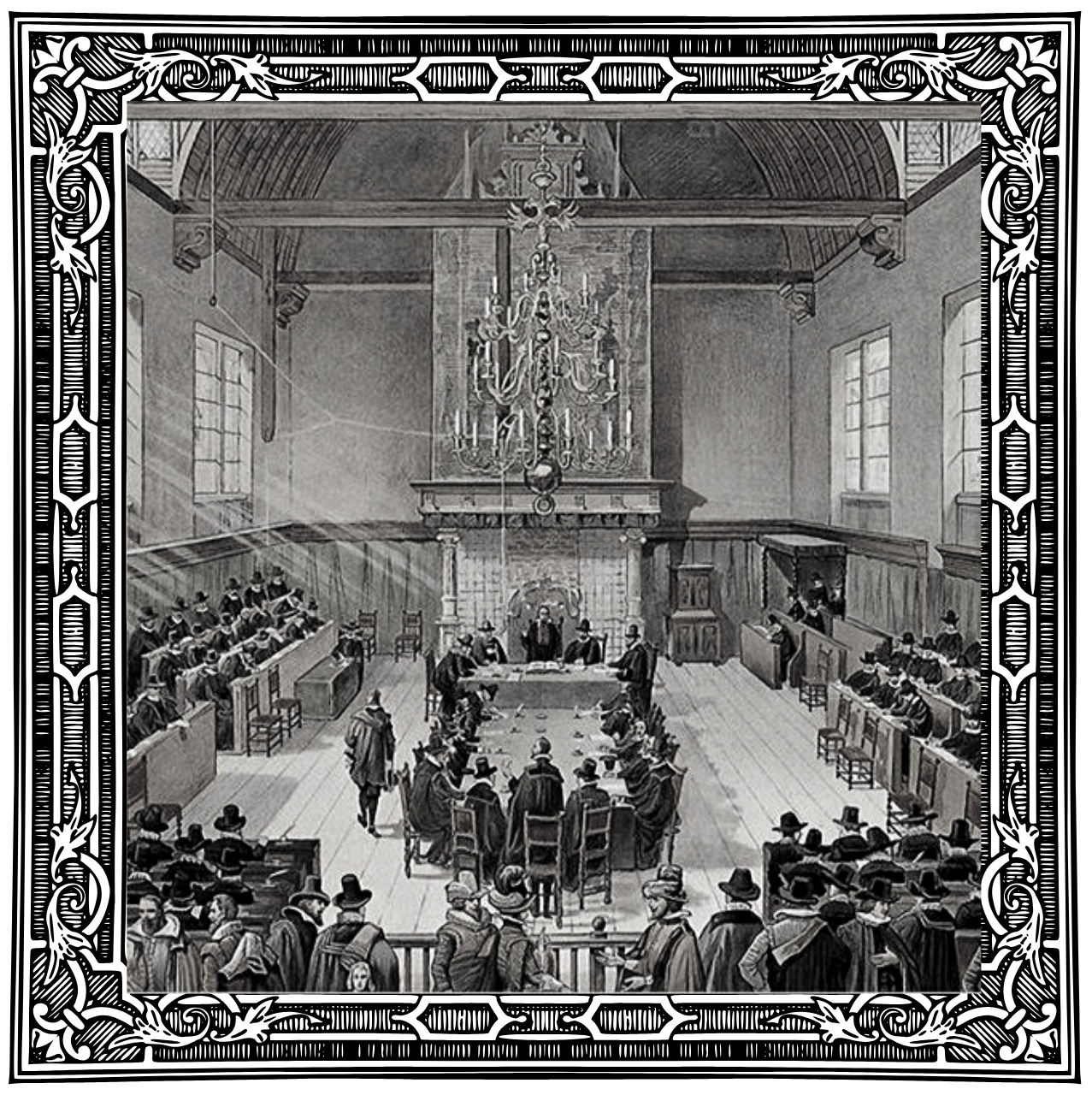The Epiphany or Manifestation of Christ to the Gentiles
January 6, 2021
The Collect
O GOD, who by the leading of a star manifested your only-begotten Son to the Gentiles: mercifully grant, that we, who know you now by faith, may after this life have the fruition of your glorious Godhead; through Jesus Christ our Lord. Amen. Amen.
The Epistle—Ephesians 3:1–12
FOR this reason I, Paul, a prisoner of Christ Jesus on behalf of you Gentiles—2 assuming that you have heard of the stewardship of God’s grace that was given to me for you, 3 how the mystery was made known to me by revelation, as I have written briefly. 4 When you read this, you can perceive my insight into the mystery of Christ, 5 which was not made known to the sons of men in other generations as it has now been revealed to his holy apostles and prophets by the Spirit. 6 This mystery is that the Gentiles are fellow heirs, members of the same body, and partakers of the promise in Christ Jesus through the gospel. 7 Of this gospel I was made a minister according to the gift of God’s grace, which was given me by the working of his power. 8 To me, though I am the very least of all the saints, this grace was given, to preach to the Gentiles the unsearchable riches of Christ, 9 and to bring to light for everyone what is the plan of the mystery hidden for ages in God, who created all things, 10 so that through the church the manifold wisdom of God might now be made known to the rulers and authorities in the heavenly places. 11 This was according to the eternal purpose that he has realized in Christ Jesus our Lord, 12 in whom we have boldness and access with confidence through our faith in him.
The Gospel—Matthew 2:1–12
WHEN after Jesus was born in Bethlehem of Judea in the days of Herod the king, behold, wise men from the east came to Jerusalem, 2 saying, “Where is he who has been born king of the Jews? For we saw his star when it rose and have come to worship him.” 3 When Herod the king heard this, he was troubled, and all Jerusalem with him; 4 and assembling all the chief priests and scribes of the people, he inquired of them where the Christ was to be born. 5 They told him, “In Bethlehem of Judea, for so it is written by the prophet:
6 “‘And you, O Bethlehem, in the land of Judah,
are by no means least among the rulers of Judah;
for from you shall come a ruler
who will shepherd my people Israel.’”
7 Then Herod summoned the wise men secretly and ascertained from them what time the star had appeared. 8 And he sent them to Bethlehem, saying, “Go and search diligently for the child, and when you have found him, bring me word, that I too may come and worship him.” 9 After listening to the king, they went on their way. And behold, the star that they had seen when it rose went before them until it came to rest over the place where the child was. 10 When they saw the star, they rejoiced exceedingly with great joy. 11 And going into the house, they saw the child with Mary his mother, and they fell down and worshiped him. Then, opening their treasures, they offered him gifts, gold and frankincense and myrrh. 12 And being warned in a dream not to return to Herod, they departed to their own country by another way.
.
The Homily
THE meaning of the Feast of Epiphany is given in its subtitle: “the manifestation of Christ to the Gentiles.” In this season of the year, we move from Christmas when the Son of God was born as Israel’s Messiah to his being also “the desire of all nations” (Hag. 2:7).
Matthew so famously chronicles epiphany in the journey of the pilgrims: after Jesus was born in Bethlehem…behold, wise men from the east came to Jerusalem (v. 1). They’re called magoi (μάγοι), from which we get the title Magi. This can be used of wise men, astrologers, or magicians. They’re from the east, so they could’ve been from Babylon or even further from Persia, where there were Jewish settlements after the deportations. The details of who they were aren’t as important as whom they represent: the first-fruits of the Gentiles to worship the Lord. As we prayed, by the leading of a star [you] manifested your only-begotten Son to the Gentiles. The psalmist sang of epiphany: “May the kings of Tarshish and of the coastlands render him tribute; may the kings of Sheba and Seba bring gifts! May all kings fall down before him, all nations serve him! (Ps. 72:10–11) The prophet proclaimed epiphany: “Nations shall come to your light, and kings to the brightness of your rising…the wealth of the nations shall come to you…They shall bring gold and frankincense” (Isa. 60:3, 6). The details of who the Magi were aren’t as important as whom they worshipped: “Where is he who has been born king of the Jews? For we saw his star when it rose and have come to worship him” (v. 2). Why would eastern people worship a Jewish child? This star (vv. 2, 7, 9, 10) testified of who he was. They saw something that could be described and observed as a star; but make no mistake about it: this was a supernatural phenomenon. Note how it moved from east to west so that they could follow it: the star that they had seen when it rose went before them until it came to rest over the place where the child was (v. 9). Further, it’s implied that it shone both in night and day—almost like it was a pillar of fire and cloud in the wilderness! Even more, note how this “star” is personified with personal terms: it went before them and it came to rest (v. 9). Note where. The ESV says over the place where the child was, creating the mental image we’ve all seen in art: a star suspended in the sky pointing light down over the house. The text simply says over where the child was.11 Chrysostom, 1:80–81. On the similarity to the pillar of fire and cloud in the wilderness, see Hall, 415 col. 2. It hovered not over the house, but over the child.
What does all this mean? Hundreds of years before, Ezekiel 10 said the cloud of the Lord’s glory left the temple and went east into exile with his people. It never returned. Now Matthew says that glory is going from exile in the east to the Promised Land in the west again. To go east in Scripture is to go “east of Eden,” away from the presence of the Lord; to go west is to go back towards his presence in Eden (Gen. 3:23–24). The glory of the Lord is leading Gentiles into the presence of the Lord’s glory that rests above Jesus. The star is the glory of the Lord! This means Jesus is the Lord of glory who once dwelt in the holy of holies and before that in Eden. This is why when the Magi saw the star, they rejoiced exceedingly with great joy and fell down and worshiped him, offering gold and frankincense and myrrh (vv. 10, 11).
Paul so powerfully explains epiphany in the gospel he proclaimed. God gave him for the benefit of the Gentiles the stewardship of God’s grace (v. 2) and the mystery was made known to me by revelation (v. 3). A mysterycan be a secret or something that was hidden but is now made known. The mystery of Christ (v. 4) was hidden but is now made known: this mystery…was not made known to the sons of men in other generations as it has now been revealed to his holy apostles and prophets by the Spirit (v. 5). Paul’s not saying this mystery was a complete secret in the Old Testament, but when he says as it has now been revealed, he implies that it’s clearer now than before. What’s clearer? That the Gentiles are fellow heirs, members of the same body, and partakers of the promise in Christ Jesus through the gospel (v. 6). Before the coming of the Messiah there were prophecies of this: “in you all the families of the earth shall be blessed” (Gen. 12:3). There were examples, glimpses, and foretastes of this in people like Ruth, Rahab, and the Ninevites. But now it’s clear that this is God’s purpose for the world. In fact, it’s the gospel (v. 7)! This is the unsearchable riches of Christ (v. 8)! Paul wasn’t merely to steward this treasure away in a vault; his purpose for existence was to bring [this] to light for everyone (v. 9). This gospel of including the world was the plan of the mystery hidden for ages in God, who created all things (v. 9). It’s so revolutionary to human thinking that it even has a heavenly dimension: through the church of Jews and Gentiles the manifold wisdom of God might now be made known to the rulers and authorities in the heavenly places (v. 10). The resurrected Jesus is the Lord of every tribe, language, people, and nation not Satan and his minions! All this was according to the eternal purpose that he has realized in Christ Jesus our Lord (v. 11). It’s in him that you and I have boldness and access with confidence through our faith in him (v. 12).
What a manifestation of the eternal Son in human flesh, space, and time for everyone, you and me, Jew and Gentile! Do you know this Gospel? Are you desirous to see it applied practically in our nation’s continued turmoil? We, who know this wise and gracious God now by faith are to pray for the peoples around us to come to faith, too. And as we pray, we ask him that we may after this life have the fruition of his glorious Godhead. Amen.







